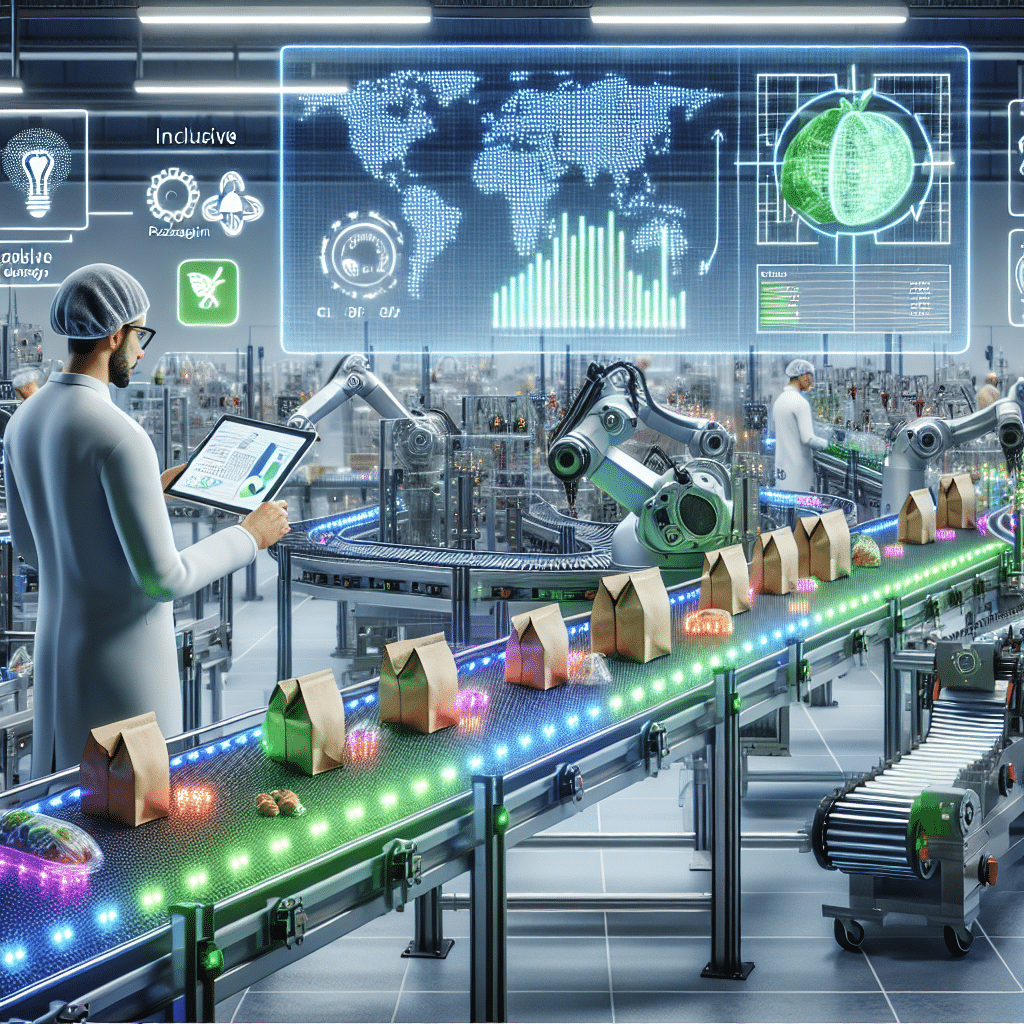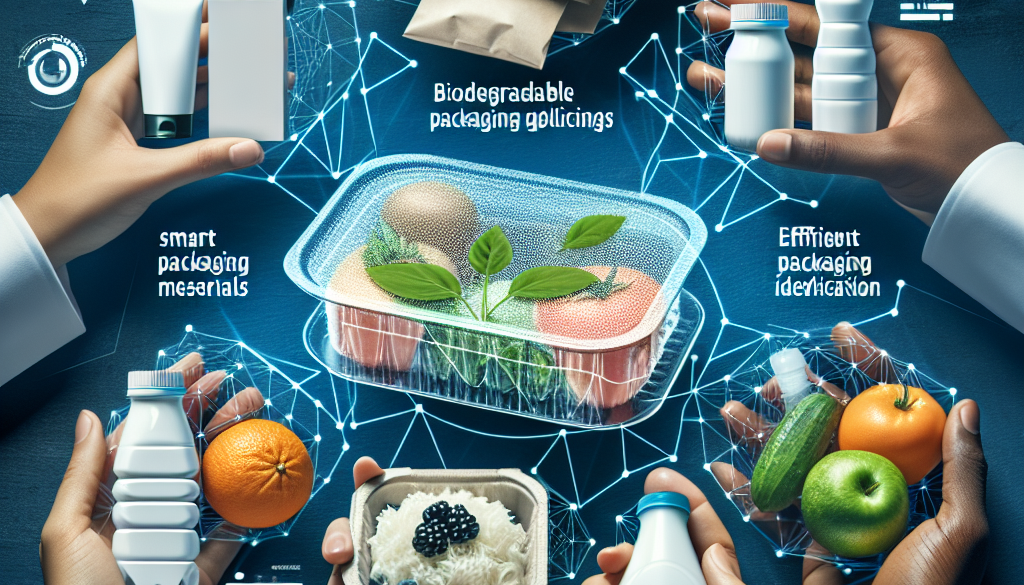New Progress in the Food Packaging Sector
-
Table of Contents
Advancements in Food Packaging: Innovations Shaping the Industry

The food packaging sector is undergoing a transformation, driven by technological advancements, environmental concerns, and changing consumer preferences. As the industry evolves, new materials, designs, and processes are emerging, offering improved sustainability, functionality, and convenience. This article delves into the latest progress in food packaging, highlighting the innovations that are setting new standards for the future.
Biodegradable and Compostable Materials
One of the most significant trends in food packaging is the shift towards biodegradable and compostable materials. Traditional plastics, which can take hundreds of years to decompose, are being replaced by plant-based alternatives that break down much more quickly and with less environmental impact.
- Polylactic acid (PLA) plastics, made from fermented plant starch (usually corn), are now widely used for items like clear cups and clamshell containers.
- Mushroom-based packaging, which uses mycelium to create custom-shaped packaging, is both biodegradable and home-compostable.
- Edible packaging solutions are also being developed, using natural ingredients like seaweed, which can be consumed along with the product or composted.
These materials not only help reduce the carbon footprint of packaging but also offer new disposal options that are more aligned with circular economy principles.
Smart Packaging Technologies
Smart packaging is another area where significant progress is being made. Incorporating sensors, indicators, and digital technology, smart packaging can enhance food safety, extend shelf life, and improve consumer engagement.
- Time-temperature indicators can monitor and display the temperature history of perishable goods, ensuring food safety.
- Near Field Communication (NFC) tags and Quick Response (QR) codes allow consumers to access detailed product information, traceability data, and interactive content through their smartphones.
- Active packaging solutions are being developed that can actively manage the condition of the packaged food, such as by absorbing excess oxygen or moisture.
These technologies not only provide added value to consumers but also help reduce food waste by improving product monitoring throughout the supply chain.
Lightweight and Flexible Packaging
Reducing material use without compromising protection is a key goal in the food packaging sector. Lightweight and flexible packaging solutions are gaining popularity due to their reduced environmental impact and cost savings in transportation.
- Flexible pouches are replacing rigid containers for a variety of products, from soups to snacks, due to their lower weight and compact nature.
- Advances in material science have led to thinner, yet stronger, packaging films that require less material to produce and reduce shipping weight.
- Manufacturers are also focusing on downgauging, which involves reducing the thickness of packaging materials without affecting performance.
These innovations not only help in conserving resources but also contribute to lowering greenhouse gas emissions during transportation.
Recycling and Upcycling Initiatives
Improving the recyclability of food packaging is crucial for minimizing its environmental impact. The industry is making strides in developing packaging that is easier to recycle or can be upcycled into new products.
- Monomaterial packaging, made from a single type of polymer, is easier to recycle than multi-layered or mixed-material packaging.
- Chemical recycling processes are being developed to break down plastics into their basic components, which can then be used to create new plastics of the same quality.
- Upcycling initiatives are turning post-consumer packaging waste into new products, such as building materials or textiles, adding value to what was once considered trash.
These efforts are not only reducing the amount of waste sent to landfills but also promoting a more sustainable lifecycle for packaging materials.
Conclusion
The food packaging sector is at the forefront of innovation, with new materials, technologies, and processes that are transforming the industry. Biodegradable and compostable materials are reducing environmental impact, smart packaging is enhancing food safety and consumer engagement, lightweight and flexible packaging is cutting down on resource use, and recycling and upcycling initiatives are closing the loop on packaging waste. These advancements are not only beneficial for the planet but also for businesses and consumers, offering improved functionality and sustainability.
As the industry continues to evolve, it is clear that the future of food packaging will be shaped by a commitment to innovation, sustainability, and consumer satisfaction.
ETprotein: Leading the Way in Sustainable Protein Products
In line with the advancements in food packaging, ETprotein is a company that stands out for its commitment to sustainability and quality in the protein sector. ETprotein’s range of organic bulk vegan proteins and L-(+)-Ergothioneine (EGT) products are an excellent choice for businesses looking to align with the latest trends in food packaging and sustainability.
Their products, including Organic rice protein, clear rice protein, pea protein, clear pea protein, and various seed proteins, are characterized by a neutral taste, non-GMO, allergen-free attributes, and high purity levels. These proteins are ideal for a variety of applications in the nutraceutical, pharmaceutical, cosmeceutical, veterinary, and food and beverage industries.
ETprotein’s commitment to quality and sustainability makes them a perfect partner for companies looking to innovate in the food packaging sector. For more information or to sample their products, please contact ETprotein and email sales(at)ETprotein.com today.
About ETprotein:
ETprotein, a reputable protein and L-(+)-Ergothioneine (EGT) Chinese factory manufacturer and supplier, is renowned for producing, stocking, exporting, and delivering the highest quality organic bulk vegan proteins and L-(+)-Ergothioneine. They include Organic rice protein, clear rice protein, pea protein, clear pea protein, watermelon seed protein, pumpkin seed protein, sunflower seed protein, mung bean protein, peanut protein, and L-(+)-Ergothioneine EGT Pharmaceutical grade, L-(+)-Ergothioneine EGT food grade, L-(+)-Ergothioneine EGT cosmetic grade, L-(+)-Ergothioneine EGT reference grade and L-(+)-Ergothioneine EGT standard. Their offerings, characterized by a neutral taste, non-GMO, allergen-free attributes, with L-(+)-Ergothioneine purity over 98%, 99%, cater to a diverse range of industries. They serve nutraceutical, pharmaceutical, cosmeceutical, veterinary, as well as food and beverage finished product distributors, traders, and manufacturers across Europe, USA, Canada, Australia, Thailand, Japan, Korea, Brazil, and Chile, among others.
ETprotein specialization includes exporting and delivering tailor-made protein powder and finished nutritional supplements. Their extensive product range covers sectors like Food and Beverage, Sports Nutrition, Weight Management, Dietary Supplements, Health and Wellness Products, and Infant Formula, ensuring comprehensive solutions to meet all your protein needs.
As a trusted company by leading global food and beverage brands and Fortune 500 companies, ETprotein reinforces China’s reputation in the global arena. For more information or to sample their products, please contact them and email sales(at)ETprotein.com today.












